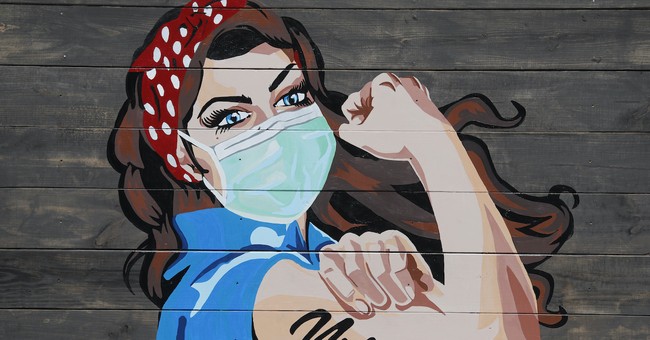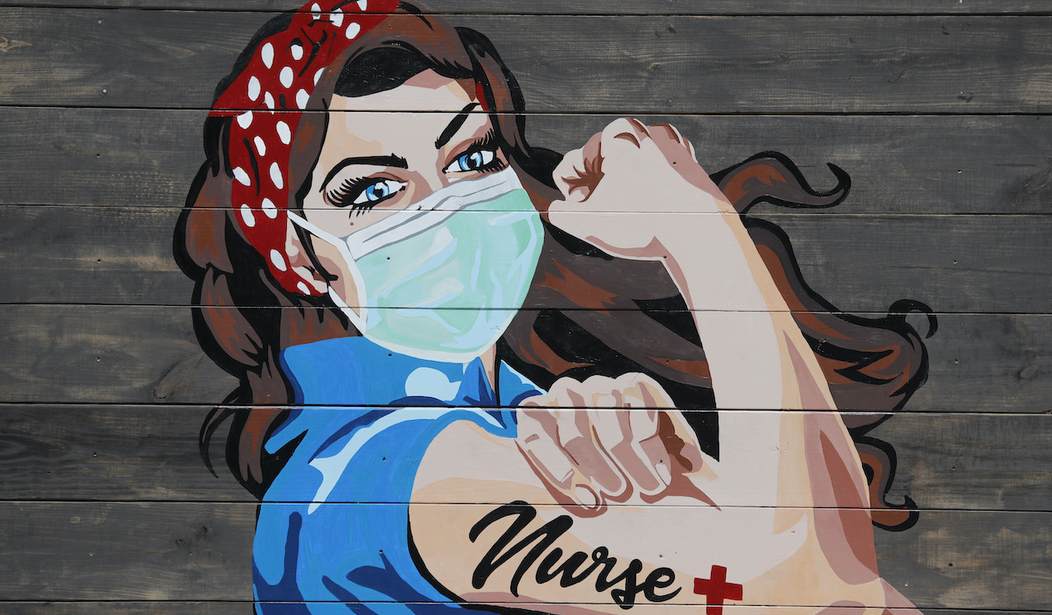
Three prominent doctors, noting hospital layoffs and a lack of patronage by patients for health care needs other than coronavirus, are warning if the country remains closed much longer the health consequences could be severe.
Simone Gold, M.D., an emergency medicine specialist in Los Angeles, has been helping other physicians and health care professionals like herself, concerned about empty hospitals in areas not hit hard by coronavirus, to speak out.
Gold says in her hospital 50% of lower level technicians were recently laid off and she’s worried not many people understand what’s happening on the ground at health care facilities that have seen far fewer cases than virus hotspot areas like New York or New Jersey. And she’s not sure Americans, who are trying to be responsible during the pandemic and so are staying home when they should be going in for treatment, understand what’s happening.
“There is a very big disconnect between what the average American thinks is going on and what’s actually going on,” Gold said Tuesday.
And what’s going on looks a great deal like what’s outlined in this piece detailing the precipitous drop in patients at many hospitals across the country as patients who need treatment for maladies other than coronavirus are staying home, to their disadvantage and to the detriment of the American health care sector.
While big hospitals in places such as New York City, Detroit and New Orleans have been overwhelmed with a massive surge of COVID-19 cases, Williamson Memorial is one of hundreds of rural hospitals across the nation that have suffered from an altogether different crisis: a massive drop in patients.
The struggling 76-bed hospital in this rugged Appalachian coal country town of residents was forced to close down last month after the global coronavirus pandemic hit just as administrators were trying to climb out of bankruptcy and work out a deal for another hospital to take over.
The only hospital in Mingo County, a remote pocket of West Virginia, Williamson Memorial did not treat any patients with COVID-19 — so far, the county of 23,400 residents has confirmed just three cases and one death. But the hospital’s net revenue was slashed in half as administrators halted nonessential procedures and visits to the emergency room plummeted from about 800 to 300 a month.
And so this former mining town, nestled in a narrow valley surrounded by hills of poplar and oak, has lost the hospital that served its people for more than a century.
Steven Giannotta, M.D. Chair of the Neurosurgery department at the University of Southern California, said analysis of RAPID Scan data of stroke patients across the country is proving that people may be literally sitting at home after having suffered a stroke rather than accessing their health care system.
“People are afraid to access the health care system” Dr. Giannotta says because they believe a COVID-19 diagnosis “is the worst possible outcome.”
Robert Hamilton, M.D., a private practice pediatrician in Santa Monica, says the affect the lock down has on children — who he affirms are not the “super spreaders” some have made them out to be — should be of great concern to parents. He notes that vaccination rates are way down across the nation.
“What we’re doing, because of fear of potential infection of COVID-19, [is] ignoring [our kids] maintenance,” Hamilton says. He also notes that the emotional and psychological effects of the lock down — everything from depression, suicide, despair, and paranoia — are equally damaging to the nation’s youth.
“Friends are important,” Hamilton says. “Education is important, too.”
All three physicians are calling for reasonable fear of the virus but declare a need to begin reopening the country so patients will begin showing up for treatment again.
“We need to keep our focus on our initial goal,” says Gold, referring to early efforts to ensure hospitals aren’t overwhelmed with COVID-19 patients.
“Not only are they not overwhelmed,” she says, “they’re underwhelmed”













Join the conversation as a VIP Member